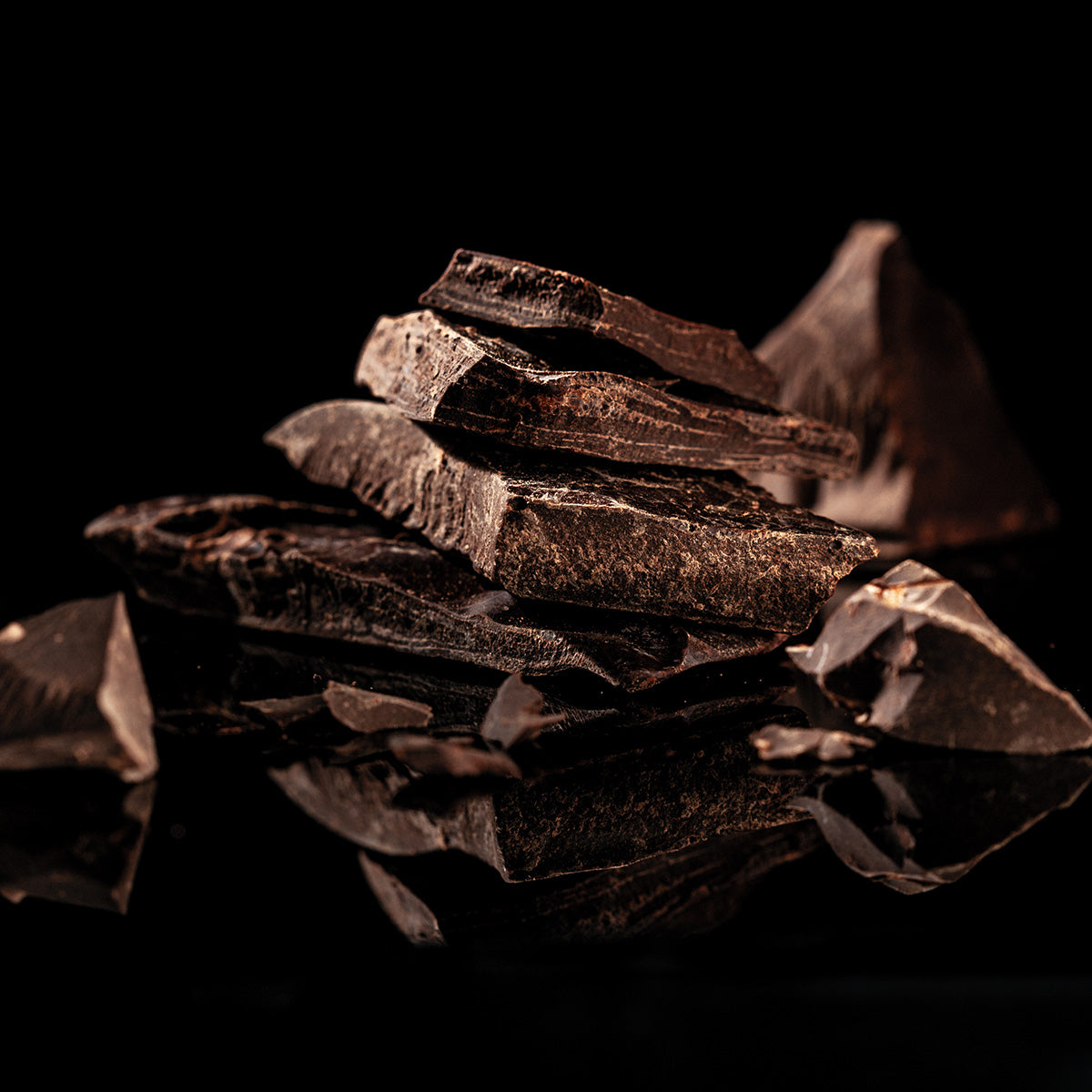
What Does a Salad Guy Know About Chocolate? A Lot, Actually.
As someone who’s spent years in the food industry, salads are my bread and butter (or, I should say, my chickpeas and greens). But chocolate? That’s a different story. What does a salad guy know about chocolate? Well, quite a bit, as it turns out. Especially dark chocolate, which has become one of my favorite indulgences—and a surprising ally in my personal health journey. So, let’s dive into the world of dark chocolate, why it’s not just for dessert, and how you can make it part of a balanced diet.
What Is Dark Chocolate?
Dark chocolate is made from cocoa solids, cocoa butter, and a little sugar. Unlike milk chocolate, it doesn’t contain milk solids, which is why it’s often richer, more bitter, and higher in antioxidants. The key ingredient here is the cocoa itself—more specifically, the flavanols found in cocoa. These compounds are what give dark chocolate its health-boosting reputation, and the higher the cocoa content, the more flavanols you’re getting.
I’m a huge fan of dark chocolate, and I’m not just talking about any old bar. My favorite is from the Japanese brand Meiji—specifically their ultra-dark variety. No, I’m not being paid to say this. It’s just genuinely the best dark chocolate I’ve come across, and it pairs perfectly with a strong Italian espresso or an Americano, which adds a whole new layer to the flavor.
What Are the Health Benefits of Dark Chocolate?
Dark chocolate isn’t just a tasty treat—it’s packed with nutrients that can benefit your body in numerous ways. Here’s why it’s worth adding to your diet in moderation:
- Rich in antioxidants: Thanks to the flavanols in cocoa, dark chocolate is loaded with antioxidants that can help protect your cells from damage. These compounds are also linked to improved blood flow, lower blood pressure, and better heart health.
- Mood booster: Dark chocolate contains compounds that stimulate the production of endorphins (the feel-good chemicals) and serotonin, which can help improve your mood.
- Helps with glucose regulation: For someone like me, who’s struggled with keeping glucose levels in check, dark chocolate can be a smart choice. The flavanols in dark chocolate may improve insulin sensitivity, helping regulate blood sugar levels—a win for anyone managing prediabetes or diabetes.
- Supports weight management: Believe it or not, dark chocolate can even support weight management. While it’s calorie-dense, the combination of fat and fiber in dark chocolate can promote a feeling of fullness, potentially reducing cravings for less healthy snacks. That’s a big deal for someone like me, who has long battled with keeping weight off.
How Much Dark Chocolate Is Acceptable Per Serving?
The key to enjoying dark chocolate without overdoing it is moderation. Most experts recommend sticking to around 1 ounce (about 28 grams) per day. That’s enough to enjoy the health benefits without going overboard on calories or sugar. And when I say dark chocolate, I’m talking about varieties that are at least 70% cocoa—the higher, the better.
My go-to Meiji dark chocolate is a perfect example of a treat that satisfies without the guilt. It’s bold, bitter, and doesn’t overwhelm you with sweetness, making it a great complement to a cup of real Italian espresso.
What Happens If You Eat Dark Chocolate Every Day?
If you stick to the recommended serving size, eating dark chocolate every day can actually be a smart addition to a balanced diet. You get a daily dose of antioxidants and mood-boosting compounds, and for those of us managing glucose levels, it could even help improve insulin sensitivity over time.
However, balance is everything. Dark chocolate is still a calorie-dense food, and too much of it can contribute to weight gain or spike your sugar intake. So, while a daily square of chocolate might be good for your heart and mind, don’t treat it like a free pass to binge on the whole bar (as tempting as that might be).
How Can You Incorporate Dark Chocolate Into a Balanced Diet?
Dark chocolate is a versatile ingredient that can be worked into a healthy diet in lots of creative ways. Here are a few ideas:
- Pair with fruit: Dark chocolate and fresh fruit make a satisfying, antioxidant-packed snack. Try dipping strawberries or oranges in melted dark chocolate for a healthy dessert.
- Add to smoothies: Blend a small piece of dark chocolate into your morning smoothie for a rich, indulgent twist without adding too much sugar.
- Mix into yogurt: Sprinkle a few shavings of dark chocolate over plain Greek yogurt with a handful of nuts for a protein-packed snack that feels like a treat.
- Enjoy with coffee: My personal favorite—nothing beats pairing a square of dark chocolate with a rich, bitter espresso or Americano. It’s the ultimate pick-me-up.
A Final Thought on Dark Chocolate
Dark chocolate has certainly earned its spot in my pantry—not just because it tastes amazing, but because it fits into my personal health goals. From supporting heart health to helping with weight management and even keeping my glucose levels in check, dark chocolate is a surprisingly beneficial part of a balanced diet. Just remember: moderation is key. Stick to a small daily serving, pair it with nutrient-dense foods, and enjoy it as part of a healthy lifestyle.
So, while I may be a salad guy at heart, there’s always room for a little bit of indulgence—especially when it’s as delicious (and beneficial) as a square of high-quality dark chocolate.






